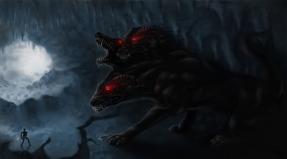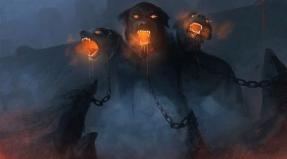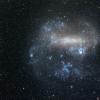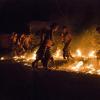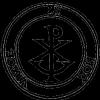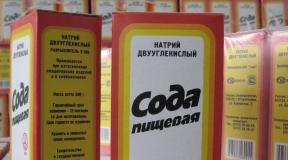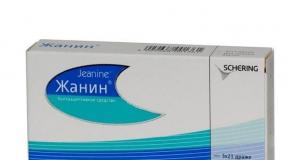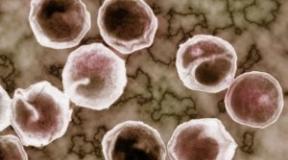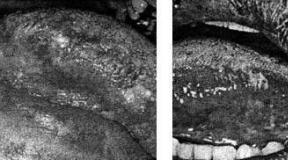Mikhail Gorbachev is the first and last president of the USSR. Establishment of the post of President in the USSR Last President of the USSR Gorbachev
- History Tags: Gorbachev
Twenty-one years ago, on March 15, 1990, at the Third Extraordinary Congress of People's Deputies of the USSR, Chairman of the Supreme Soviet Mikhail Sergeevich Gorbachev was elected the first and only president in the history of the Soviet Union.
He stayed in this post for about two years, until Judas Yeltsin, by deceit and thieves' manipulations, sent his old political opponent to the dustbin of history. It is still not known for certain whether the resignation of the current president of the USSR was accepted in the prescribed manner by the State Council.
However, neither then, nor now, no one was interested in it. Scavengers and marauders from all over the world flocked to the stiffening corpse of the Soviet Union. A camarilla of crooks and thieves came to power in Russia, "free" from 1/3 of its territory.
But let's leave the gangster junta of EBN, who shot the parliament from tanks, in the best traditions of Pinochet, and brought the once mighty state to its knees. Let us return to Mikhail Sergeevich, the restless talker, who still firmly believes that he is speaking the truth. Probably, like any Soviet citizen, my attitude towards Gorbachev changed from enthusiastic to contemptuous. This figure is controversial, which has been written about more than once, there is no point in repeating about his mistakes and miscalculations. I want to say only about two things for which, to this day, I can thank him.
First, this is something that many have forgotten. It was Gorbachev who gave us the freedom to think, read and speak. And all the myths that the alcoholic Boris Yeltsin did it are simply the result of shameless propaganda organized by his former accomplice Boris Berezovsky.

In 1987-1988 we stood in queues for new issues of newspapers, we were thirsty for spiritual food, and like a sponge we absorbed thousands of pages of books, newspapers and magazines. Every day we become different. The air of freedom intoxicated and parted our shoulders. We were waiting for change. The atmosphere in society was filled with energy hitherto unknown to us. We were waiting for real deeds and new worthy tasks. And on this wave, we could catch up and overtake both Europe and America. But this did not happen. Gorbachev blabbed his greatest accomplishment.
And the second. Gorbachev was certainly not a sufficiently sober and pragmatic leader, indeed, such could not appear in the Soviet system of promotion up the party ladder. Mikhail Sergeyevich was a vain romantic talker who, for a friendly pat on the shoulder from the US President, could surrender the GDR, and our troops there, with all the giblets. Who believed the "word" of Western politicians, who quietly laughed at his naivety. But…Mikhail Sergeevich always tried to avoid violence. He is perhaps one of the few leaders of our country whose hands are not up to the elbows in blood. He did not cling convulsively to the presidential chair, as did the EBN and his successors. He did not create a "family" that mercilessly robbed everything in Russia that could be robbed. He did not bring to power a gang of crooks and thieves from St. Petersburg, who call themselves "statists". Statesmen who saw the state good.
Gorbachev himself once said about three mistakes he made: He didn’t reform the party on time, he was late with the reform of the Soviet Union as a multinational community, and he didn’t exile Yeltsin to some distant country to harvest bananas ...
Saved
Mikhail Sergeyevich Gorbachev He was elected President of the USSR on March 15, 1990 at the Third Extraordinary Congress of People's Deputies of the USSR.
On December 25, 1991, in connection with the termination of the existence of the USSR as a state entity, M.S. Gorbachev announced his resignation from the post of President and signed a Decree on the transfer of control of strategic nuclear weapons to Russian President Yeltsin.
On December 25, after Gorbachev's resignation, the red state flag of the USSR was lowered in the Kremlin and the flag of the RSFSR was raised. The first and last President of the USSR left the Kremlin forever.
The first president of Russia, then still the RSFSR, Boris Nikolaevich Yeltsin was elected on June 12, 1991 by popular vote. B.N. Yeltsin won in the first round (57.3% of the vote).
In connection with the expiration of the term of office of the President of Russia, Boris N. Yeltsin, and in accordance with the transitional provisions of the Constitution of the Russian Federation, the election of the President of Russia was scheduled for June 16, 1996. It was the only presidential election in Russia where it took two rounds to determine the winner. The elections were held on June 16 - July 3 and were distinguished by the sharpness of the competitive struggle between the candidates. The main competitors were the current President of Russia B. N. Yeltsin and the leader of the Communist Party of the Russian Federation G. A. Zyuganov. According to the election results, B.N. Yeltsin received 40.2 million votes (53.82 percent), well ahead of G. A. Zyuganov, who received 30.1 million votes (40.31 percent). 3.6 million Russians (4.82%) voted against both candidates .
December 31, 1999 at 12:00 Boris Nikolayevich Yeltsin voluntarily ceased to exercise the powers of the President of the Russian Federation and transferred the powers of the President to Prime Minister Vladimir Vladimirovich Putin. On April 5, 2000, the first President of Russia, Boris Yeltsin, was presented with certificates of a pensioner and labor veteran.
December 31, 1999 Vladimir Vladimirovich Putin became acting president.
In accordance with the Constitution, the Federation Council of the Russian Federation has set March 26, 2000 as the date for the early presidential elections.
On March 26, 2000, 68.74 percent of the voters included in the voting lists, or 75,181,071 people, took part in the elections. Vladimir Putin received 39,740,434 votes, which amounted to 52.94 percent, that is, more than half of the votes. On April 5, 2000, the Central Election Commission of the Russian Federation decided to recognize the elections of the President of the Russian Federation as valid and valid, to consider Vladimir Vladimirovich Putin elected to the post of President of Russia.
March 15, 2019 marks 29 years since the election of the first and last President of the USSR. This is an exceptional and one of a kind event in the history of our country. Mikhail Gorbachev became the president of a huge power for just one year, the existence of which ceased already in 1991. How it was - we will tell right now.
Photo: Vladimir Musaelyan, Eduard Pesov/TASS
Little known fact: Mikhail Gorbachev still reads up to 10 newspapers and magazines a day. And since he never mastered the work on the Internet, a special program was installed on his computer. Now, to see the news summary, he only needs to press one button.
Mikhail Gorbachev turned 88 this year. He rarely leaves his state dacha in the Moscow region, although he does not stop working: he writes books, manages the fund, and is actively involved in expert discussions at the highest level.
And then, in 1990, he was a 59-year-old successful politician who had been the General Secretary of the Central Committee of the CPSU for five years. And since 1988, he has already combined the highest positions in both the party and state hierarchy.
Domestic Policy: Glasnost and Perestroika
During his reign, Mikhail Gorbachev managed to implement several global projects, which are now being evaluated differently. The most striking in domestic politics were the anti-alcohol campaign, launched in 1985, and perestroika, which took place under the motto of glasnost and openness.
Within the framework of perestroika, democratic changes unprecedented in the USSR took place in the country. Among them is the introduction of elections to the Supreme Soviet of the USSR and local councils on an alternative basis. The one-party system that had existed for many decades was abolished. And the CPSU lost its constitutional status of "leading and guiding force." A campaign to rehabilitate victims of political repression reached a wide scale, and citizenship was returned to dissidents expelled from the country. Moreover, for the first time since the NEP, private entrepreneurship was allowed in the country. And enterprises switched to self-financing and self-financing. They received the right to independently spend their profits remaining after settlements with the state.
A little-known fact: Mikhail Gorbachev has a very good memory and an amazing sense of humor. He likes to remember that for the anti-alcohol campaign he was nicknamed the "mineral secretary", he knows many anecdotes about himself by heart and tells them with pleasure on occasion.
End of the Cold War and loss of strategic positions
At the international level, Mikhail Gorbachev brought about an end to the Cold War and the arms race. An agreement was signed between the United States and the USSR on the elimination of medium and short-range missiles. Under him, the bipolar system of international relations that developed after the Second World War collapsed. True, Gorbachev's foreign policy was marked by unilateral concessions to the West, and this had catastrophic consequences for our country. Gorbachev set a course for the withdrawal of the USSR from the third world, where the United States very soon consolidated its positions. The strategic positions of the USSR deteriorated catastrophically. And since 1989, the collapse of the entire socialist system began.
Photo: Yuri Lizunov, Alexander Chumichev/TASS
A little-known fact: in a 1984 letter to Ronald Reagan, British Prime Minister Margaret Thatcher said of Gorbachev, who had not yet become the head of the USSR: “He is quite smart and open, endowed with a certain charm and sense of humor, I really liked him. I'm sure this person can be dealt with."
Why Gorbachev needed the presidency
It would seem that what could give Gorbachev the presidency? After all, as Secretary General, he was already endowed with practically unlimited powers. The point is that the first steps towards democratization turned out to be tragic. As soon as the rigid vertical of power, through his own efforts, began to give way to liberalization in the country, this immediately led to the aggravation of all the problems that had accumulated over the years of Soviet power. A tangle of incurable diseases - economic, political, interethnic and others - with the slightest weakening of total fear in society, led to the operation of all the mines laid in the system. The economic crisis was growing. And ethnic conflicts arose one after another. Plus a series of natural disasters and catastrophes that began with Chernobyl.
So by the beginning of the 1990s, Gorbachev needed to strengthen the vertical of power, and to remove this power from the CPSU. Here is one of his statements, which later became "winged":
“We have no doubt that democracy is good, but first the fundamental needs of citizens must be met. If this requires authoritarianism, I welcome such authoritarianism.”
Mikhail Gorbachev announced the need to introduce the post of President of the USSR on February 5, 1990 at an expanded plenum of the Central Committee of the CPSU. Historians call people from Gorbachev's entourage, primarily Yevgeny Primakov and Anatoly Lukyanov, the authors of this idea. Their arguments were as follows: Gorbachev should be given the opportunity to resolve issues vital for the country, which he, as chairman of the legislative body, has no right to decide. The committee on legislation supported this idea.
Elections of the President of the USSR
The post of President of the Soviet Union was introduced on March 15, 1990 by the Congress of People's Deputies of the USSR with amendments to the Constitution of the USSR. Prior to that, the highest official in the USSR was the Chairman of the Supreme Soviet of the USSR. The issue of establishing a multi-party system was also resolved there.
At the end of the same year, the IV Congress of People's Deputies of the USSR approved constitutional changes that gave Gorbachev additional powers. There was an actual resubordination to the president of the Council of Ministers, now renamed the Cabinet of Ministers. To control the intensified head of state, the post of vice-president was introduced, to which the congress elected Gennady Yanaev (it was he who later, during the August 1991 putsch, acted as President of the USSR). In an effort to get a power version of the Cabinet of Ministers, Gorbachev carried out a series of personnel changes. Instead of Vadim Bakatin, the post of Minister of Internal Affairs was given to Boris Pugo, who soon became one of the organizers of the "August Putsch". And Eduard Shevardnadze was replaced as foreign minister by the diplomat Alexander Bessmertnykh.
Time mine
Researchers believe that Mikhail Gorbachev, with his policy, laid a time bomb under himself. And the collapse of the USSR was a direct consequence of the steps that he himself took. As soon as the party vertical of power was weakened, the CPSU began to fall apart before our eyes. The 28th party congress in July 1990 led to the withdrawal of the most radical members of the Central Committee from it. After that, in just a year, 5 million people left the Communist Party - a quarter of all its members. And the Baltic communist parties proclaimed their independence.
At the same time, the formation of a multi-party system was going on. It is natural that most of the newly created parties were in opposition to the central government.
Of course, the collapse was not only at the party level. In the same 1990, the First Congress of People's Deputies of the RSFSR was held, the leadership of which was opposed to the central government. This congress elects Boris Yeltsin as Chairman of the Supreme Soviet of the RSFSR and on June 12, 1990 proclaims the "Declaration on the State Sovereignty of the RSFSR". In parallel, centrifugal sentiments are growing like an avalanche in all the republics of the USSR.
From that moment until the greatest geopolitical catastrophe of the century - the collapse of the Soviet Union remains a little more than a year.
LEARN ZEN WITH NOW READ US IN YANDEX. NEWS
Image copyright AP
On March 15, 1990, the Third Extraordinary Congress of People's Deputies of the USSR elected Mikhail Gorbachev as President of the country. He happened to work out only a third of the established five-year term.
The congress opened on March 12. In addition to establishing the post of president, he made another historic change to the constitution: he abolished Article 6 on the leading and guiding role of the CPSU.
17 deputies took part in the debate. Opinions ranged from "We see in the presidential power an important guarantee of the unity of our federation" (Nursultan Nazarbayev) and "Our country has raised a world-class leader, the author of new political thinking, a leader who advocates disarmament, for peace" (Fyodor Grigoriev) to "Perestroika will bog down presidency" (Nikolai Dzhiba).
Let's not play hide and seek, today we are talking about the election of a specific leader as the president of the country - Mikhail Sergeyevich Gorbachev Alexander Yakovlev
"An attempt to hastily, here, at the congress, introduce the post of president is the grossest, gravest political mistake, which will greatly aggravate our difficulties, anxieties and fears," Yuri Afanasyev, co-chairman of the Interregional Deputy Group, said. Academician Vitaly Gol'danskii objected: "We cannot wait, we need resuscitation, not sanatorium treatment."
The proposal to ban the combination of the post of president and leader of a political party, supported by both radical democrats and orthodox communists, who dreamed of seeing Alexander Yakovlev and Yegor Ligachev or Ivan Polozkov in the role of general secretary, respectively, received 1,303 votes and would have passed if it had not been for a constitutional amendment which required a two-thirds majority.
On March 14, a plenum of the Central Committee of the CPSU was held, which nominated Gorbachev as a presidential candidate. A number of congress deputies nominated Prime Minister Nikolai Ryzhkov and Interior Minister Vadim Bakatin, but they refused, and the elections turned out to be uncontested.
We were in a hurry to elect the President. But, perhaps, having elected, it was not worth immediately here, on the stage of the Kremlin Palace, to raise him to this post. It was necessary to postpone it for one day, announcing that the solemn action would take place, for example, in the Georgievsky Hall of the Kremlin. In the presence of deputies, the government, representatives of the working people of the capital, soldiers, diplomatic corps, and the press, the Pravda newspaper
Of the 2,245 deputies (five seats were vacant at that time), exactly two thousand participated in the congress. 1329 votes were cast for Gorbachev (59.2% of the total number of deputies). 495 voted against, 54 ballots were spoiled. 122 people did not vote.
At the suggestion of Anatoly Lukyanov, who replaced Gorbachev as chairman of the Supreme Council, the elected president immediately took the oath - going to the podium and putting his hand on the text of the constitution, he uttered a single phrase: "I solemnly swear to faithfully serve the peoples of our country, strictly follow the Constitution of the USSR, guarantee the rights and freedoms citizens, conscientiously fulfill the high duties of the President of the USSR entrusted to me.
Foreign reaction was purely optimistic.
"The Extraordinary Congress of People's Deputies of the Soviet Union made the greatest revolutionary transformations in the life of Soviet society, which have not been equaled in Russia since the 1917 revolution," Japanese television pointed out. "The decisions of the Extraordinary Congress of People's Deputies of the USSR consolidated perhaps the most important changes in the political and economic system of the USSR since the Bolshevik revolution in 1917," echoed the Washington Post.
At the pace of the military operation
Who owned the idea of introducing the post of president is unknown.
The topic has been discussed in the media since December 1989, but in the order of hypotheses and discussions.
Gorbachev's assistant Anatoly Chernyaev wrote in his memoirs that in January 1990, the "architect of perestroika" and secretary of the Central Committee, Alexander Yakovlev, told him in a terrible secret: once Gorbachev came into his office, upset, preoccupied, lonely. Like, what to do? Azerbaijan, Lithuania, economy, orthodoxies, radicals, people on the edge. Yakovlev said: "We must act. The most important obstacle to perestroika and your entire policy is the Politburo. It is necessary to convene a congress of people's deputies in the near future, let the congress elect you president." And Gorbachev agreed.
The decision on the presidency matured so urgently that they decided to go to the convocation of an extraordinary congress. I did not understand such urgency, since after the Second Congress of People's Deputies, where this issue was not even discussed, only two and a half months had passed Nikolai Ryzhkov
Be that as it may, on February 14, unexpectedly for everyone, Gorbachev voiced the idea at a session of the Supreme Council, and on February 27, the parliament decided to convene an extraordinary congress. There was not enough time for preparation and public discussion, to be honest.
The haste caused criticism from both the left and the right, who suspected some kind of trick and persistently, but unsuccessfully, tried to get a clear explanation from Gorbachev why he needed it.
The official version set out in the draft law on the establishment of the post of president and the introduction of appropriate additions to the constitution: "In order to ensure the further development of the deep political and economic transformations being carried out in the country, strengthen the constitutional order, the rights, freedoms and security of citizens, improve interaction between the highest bodies of state power and management of the USSR" did not satisfy anyone. One might think that Gorbachev did not have enough power before!
According to historians, the leading reason lay on the surface: the leader wanted, while remaining the Secretary General of the CPSU, to weaken his dependence on the Central Committee, which could at any moment convene a non-plenum and deal with him, as he once did with Khrushchev.
After Gorbachev was elected president and Article 6 was abolished, he no longer needed the party for his own legitimacy, but the party in him.
Using the powers of the General Secretary, Gorbachev just strengthens the power of the Communist Party. Including her power over the Secretary General himself. The two ideas - the abolition of Article 6 and the introduction of the presidency - are closely related. Only having received the fullness of state, and not party power, Gorbachev can carry out the abolition of the party monopoly. Otherwise, he will simply lose power Anatoly Sobchak
Since the CPSU had lost official authority, the vacuum had to be filled.
After the events in Tbilisi and Baku, it turned out to be difficult to find out who made the decisions to use the army, and talks about the need for "a person who is responsible for everything" intensified. However, the presidency did not prevent Gorbachev from avoiding responsibility for the Vilnius drama.
There was another practical consideration.
According to the tradition laid down by Leonid Brezhnev, the Secretary General simultaneously headed the highest representative body. But, starting from the spring of 1989, the Supreme Council switched to work in a permanent mode. Gorbachev, who presided over it, had to spend a lot of time at meetings. Other members of the leadership did the same, always copying the behavior of the first person.
I call for voting for the presidency and I believe that under this condition there will be social justice, national security, including the Russian people Deputy Ivan Polozkov, an orthodox communist
Naturally, this made it difficult to govern the country. And in society, the question arose: who is doing business while the debate is going on?
Meanwhile, the opinion was expressed that Gorbachev, by his nature, was more suitable for the role of the speaker than the head of state. He knew how to manipulate a large heterogeneous audience and achieve the voting results he needed.
Anatoly Sobchak in his book "Journey to Power" noted that in personal communication, the magic of Gorbachev's influence was irresistible. "Succumb to this charm, and you will begin to act as if under hypnosis," he wrote.
Main riddle
The main question that researchers still puzzle over is why Gorbachev did not go to the national elections? Moreover, this was provided for by the law on the introduction of the post of president, and only for the first case did they make a special reservation.
Many consider this a fatal mistake. As Boris Yeltsin later proved, it is very difficult to legally remove a popularly elected president from power.
Image copyright RIA Novosti Image caption According to a number of historians, Gorbachev did not want to directly measure his popularity with Yeltsin.Election not by citizens, but by deputies made Gorbachev's status insufficiently convincing, since the legitimacy of the congress itself was tarnished. He was elected under the 6th article, in the absence of an organized opposition everywhere, except for Moscow, Leningrad, Sverdlovsk and the Baltic states, a third of the deputies were representatives of public organizations.
Some historians suggest that Gorbachev, even with an objective advantage, experienced a mystical fear of Yeltsin, who somehow succeeded. Others say that he followed the lead of the nomenclature environment, which in principle did not like direct democracy and was afraid that the election campaign would give the reformers an additional opportunity to propagate their views.
In conditions of political and economic instability, once again tempting fate and going to popular elections is a risk, and Anatoly Sobchak
In public speeches, Mikhail Sergeevich mainly stressed that the situation was complicated, and the country would not get along without a president for an extra day.
"They [the deputies-interregionals] also spoke in favor of the presidency, but they conditioned it with such reservations and such approaches that it is possible to slow down for a long time, if not to bury this process. Serious decisions cannot be postponed in the current situation. The introduction of the institute of presidency is necessary for the country today," he declared at the session of the Supreme Council on February 27.
Position of the Democrats
Considering in principle the institution of the presidency to be progressive in comparison with the current form of government, the question of the President of the USSR and the procedure for his election cannot be resolved hastily, without the participation of the new Supreme Soviets of the republics, without a developed multi-party system in the country, without a free press, without strengthening the current Supreme Soviet . This question must be linked with the constitutions of the republics, with the new Union Treaty. Without these indispensable conditions, the adoption of a decision on the presidency will undoubtedly lead to a new aggravation of relations between the Center and the republics, to limiting the independence of local Soviets and self-government, to the threat of restoring a dictatorial regime in the country From a statement by the Interregional Deputy Group
Supporters of perestroika and renewal split on the issue of Gorbachev's presidency.
Some continued to see him as the only chance and believed that Gorbachev should be supported in everything, because he knows what he is doing, and because otherwise it will be even worse. The point of view of these people was expressed in a remark from a place at the congress by a deputy who did not introduce himself: “Is it really that we have no food?
Some were simply impressed by the word "president": here, we will have it, as in civilized countries!
Others pointed out that this term is associated not only with America and France, but also with Latin American and Asian dictators, and most importantly, they demanded popular alternative elections.
"I believe that only the people can make an appropriate decision," Alexander Shchelkanov, a member of the Interregional Group, said in a debate at the congress.
On the opening day of the congress, Shuvalov, a resident of Zelenograd, went on a hunger strike on Theater Square "in protest against the election of the president only by deputies."
Anatoly Sobchak was a supporter of Gorbachev's presidency on the terms put forward by him, and Yuri Afanasiev and Yuri Chernichenko were opponents. The latter, in particular, was afraid that "we will again let ourselves be fooled; if the deputies cannot really control the actions of the chairman of the Supreme Council, then it will be even more impossible to keep track of the president."
Image copyright RIA Novosti Image caption One of the main opponents of Gorbachev at the congress was deputy Yuri AfanasievBoris Yeltsin, as far as is known, did not speak publicly on this issue.
Sobchak wrote in his memoirs that shortly before the death of Andrei Sakharov, he tried to discuss with him the prospects for Gorbachev's presidency, but the academician did not show interest in the topic, considering the issue insignificant compared to the development of a new constitution.
Not a new idea
We need to cast aside fears and despondency, gain faith in our strengths and capabilities. And they are huge. The Russian people and all the peoples who have united with them in a great multinational state will be able to revive their common homeland. And they will certainly achieve this on the paths of perestroika and socialist renewal From Mikhail Gorbachev's speech at the congress after his election
The idea of establishing the post of a popularly elected president in the USSR was seriously discussed in the past: during the preparation of the "Stalinist" constitution of 1936, in the last years of Nikita Khrushchev's rule, and at the dawn of perestroika.
Why Stalin rejected it is not entirely clear. Already, 99.99% of the votes were guaranteed to him, and the nationwide expression of support for the "beloved leader" could be turned into a powerful educational and propaganda event.
Khrushchev, according to researchers, simply did not have enough time, and his successors were guided by their deep conservatism and dislike for innovation.
According to the testimonies of people who knew him, Leonid Brezhnev liked the address "Mr. President" during his foreign visits, but he did not legitimize the title.
Third try
In 1985, the "architect of perestroika" Alexander Yakovlev suggested that Gorbachev begin political reform with the party and put forward a detailed plan: to arrange an all-party discussion, to divide the CPSU into two parties - the reformist people's democratic and the conservative socialist parties - to hold elections to the Supreme Soviet and instruct the winners government formation.
Now, as I observe, Gorbachev presses on the gas and at the same time presses on the brake. The motor roars to the whole world - this is our publicity. And the car stands still Olzhas Suleimenov, deputy, Kazakh poet
According to Yakovlev's plan, both parties were to declare their adherence to the basic values of socialism, join an alliance called the Union of Communists, delegate an equal number of members to its Central Council, and nominate the chairman of the council as a joint candidate for the presidency of the USSR.
A political construction in which two parties competing with each other in the elections simultaneously enter into a certain coalition with a single leader would show the world another "Russian miracle." At the same time, some researchers believe that the implementation of the "Yakovlev plan" would allow a smooth transition to multi-party democracy and avoid the collapse of the USSR.
Then Gorbachev did not support the idea. Five years later, it was too late.
Pyrrhic victory
Gorbachev rushed about in search of alternatives, compromises, the optimal combination of old and new methods of leadership. There were mistakes, miscalculations, delays, simply absurdities. But they are not the reason for the beginning of the disintegration of society and the state. It was inevitable by the very nature of the transition of a society, unique in world history, notorious and corrupted by a long dictatorship, to freedom Anatoly Chernyaev, Gorbachev's assistant
Historians consider the First Congress of People's Deputies in May 1989 to be the peak of Gorbachev's political career, and his election as president was the beginning of its end. Soon, the leader's rating rapidly and irreversibly went down.
That was the last credit of trust issued by society.
The conservatives hoped that Gorbachev needed presidential powers to "restore order", the democrats - for bold reformist steps. When neither one nor the other happened, although he got everything he wanted, the disappointment turned out to be universal and deadly.
The prediction made at the congress by deputy Teimuraz Avaliani came true: "You will rush back and forth, and at that time what we have now will happen."
After 660 days, Gorbachev resigned (more precisely, was forced to resign).
(last in office)
President of the USSR- the post of head of state in the USSR in -1991.
The post of President of the Soviet Union was introduced on March 15, 1990 by the Congress of People's Deputies of the USSR with the corresponding amendments to the Constitution of the USSR. Prior to this, the highest official in the USSR was the Chairman of the Supreme Soviet of the USSR.
Under the President of the USSR, there was a Cabinet of Ministers - the Government of the USSR and other advisory and administrative bodies.
History
According to the Constitution of the USSR, the President of the USSR was to be elected by the citizens of the USSR by direct and secret ballot. As an exception, the first elections of the President of the USSR were held by the Congress of People's Deputies of the USSR. Mikhail Gorbachev was nominated as candidates, along with Nikolai Ryzhkov and Vadim Bakatin, who withdrew their candidacies. National elections of the President of the USSR were not held.
The first and only President of the USSR was Mikhail Gorbachev, who took the oath as President of the USSR at a meeting of the Extraordinary III Congress of People's Deputies of the USSR in the Kremlin Palace of Congresses on March 15, 1990.
After the introduction of the highest position of the President of the USSR, the posts of the President also began to be introduced in the union and autonomous republics.
Notes
see also
- Political Advisory Council under the President of the USSR
Links
- Constitution (Basic Law) of the Union of Soviet Socialist Republics (adopted at the extraordinary seventh session of the Supreme Soviet of the USSR of the ninth convocation on October 7, 1977) (as amended on December 26, 1990)
| Institutes of State Power and Administration of the USSR | ||
|---|---|---|

| Adviсe | |||||||
|---|---|---|---|---|---|---|---|
|
|||||||
| Government | |
|---|---|
| Other organs | |
|---|---|
Wikimedia Foundation. 2010 .

